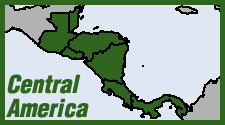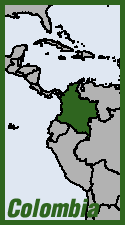 El Salvador's Feb. 2 presidential election was overshadowed by a dramatic spike in the country's homicide rate—less than a year after a truce between warring criminal gangs had led many Salvadorans to hope that their country was back from the brink. Most alarming was the December discovery of 44 bodies in 14 mass graves in a wooded area of Villa Lourdes barrio in Colón, a suburb of the capital San Salvador and a notorious gang stronghold. Many of the bullet-ridden bodies were mutilated and half-naked. Authorities accuse the Barrio 18 gang of depositing their victims in the clandestine graves. A March 2012 truce between Barrio 18 and its deadly rivals, Mara Salvatrucha (MS-13), was credited with slashing El Salvador’s homicides from more than 4,000 in 2011 to just 2,500 over the past two years. For at least 15 months after the truce, the number of killings per day averaged 5.5, up from 14 before. But January 2014 saw a daily average of 7.7. This made easy propaganda for the right-wing Nationalist Republican Alliance (ARENA) to bait the ruling left-wing Farabundo Marti National Liberation Front (FMLN) as soft on crime.
El Salvador's Feb. 2 presidential election was overshadowed by a dramatic spike in the country's homicide rate—less than a year after a truce between warring criminal gangs had led many Salvadorans to hope that their country was back from the brink. Most alarming was the December discovery of 44 bodies in 14 mass graves in a wooded area of Villa Lourdes barrio in Colón, a suburb of the capital San Salvador and a notorious gang stronghold. Many of the bullet-ridden bodies were mutilated and half-naked. Authorities accuse the Barrio 18 gang of depositing their victims in the clandestine graves. A March 2012 truce between Barrio 18 and its deadly rivals, Mara Salvatrucha (MS-13), was credited with slashing El Salvador’s homicides from more than 4,000 in 2011 to just 2,500 over the past two years. For at least 15 months after the truce, the number of killings per day averaged 5.5, up from 14 before. But January 2014 saw a daily average of 7.7. This made easy propaganda for the right-wing Nationalist Republican Alliance (ARENA) to bait the ruling left-wing Farabundo Marti National Liberation Front (FMLN) as soft on crime.

 Medical marijuana advocates are telling President
Medical marijuana advocates are telling President  Colombia's
Colombia's  Mexico's federal government signed an accord with Michoacán's "community police" network Jan. 27, calling for the self-defense militias to be incorporated into the official security forces. The pact was signed by
Mexico's federal government signed an accord with Michoacán's "community police" network Jan. 27, calling for the self-defense militias to be incorporated into the official security forces. The pact was signed by 






Recent comments
2 weeks 23 hours ago
2 weeks 1 day ago
5 weeks 1 day ago
6 weeks 1 day ago
10 weeks 1 day ago
13 weeks 6 days ago
18 weeks 4 hours ago
18 weeks 5 days ago
28 weeks 5 days ago
32 weeks 5 days ago